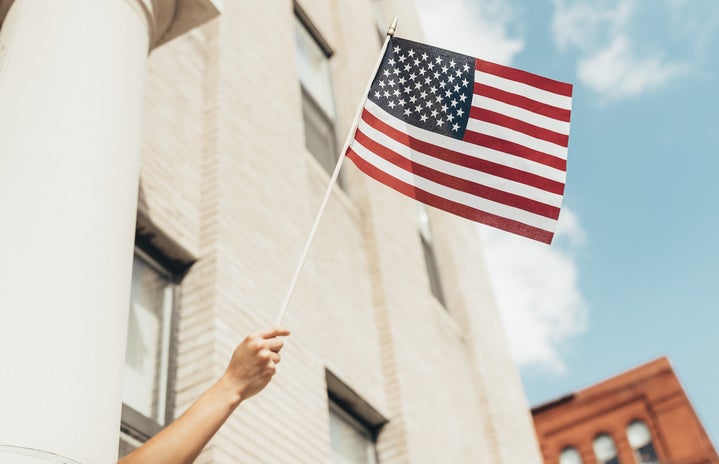Recently, Florida Gov. Ron DeSantis has increased his administration’s focus on eliminating “indoctrination” within education. While his plans are praised by some, many of these actions are widely controversial, garnering national attention.
In March 2022, Florida HB 1557, otherwise known as the “Don’t Say Gay” bill, was passed and signed into law by DeSantis. This bill bans classroom instruction on sexual orientation or gender identity from kindergarten to third grade or in a manner that is not age or developmentally-appropriate. The language is broad, leaving confusion about how the implementation of this bill should be approached, including what topics can/cannot be discussed and in what contexts. Proponents of the bill argue that parents have a right to choose when to discuss certain topics, such as sexuality and gender identity, with their children. In contrast, the bill has been criticized by LGBTQ+ individuals, families, and organizations, who feel as though this bill is discriminatory and further ostracizes the community. Additionally, HB 1467 requires books to be age-appropriate, free from pornography, and “suited to student needs.” All books contained in teachers’ classroom collections or school libraries must either be on the state-adopted instructional materials list or be approved by a qualified school media specialist, who has completed a state retraining on book collection. To avoid unintentionally violating the law, some school districts, including Manatee and Duval counties, have instructed teachers to remove or cover all books that have not been reviewed.
Restrictions on K-12 education have not stopped there. In January 2023, the Florida Department of Education (DOE) blocked the new AP African American Studies course, claiming that it “significantly lacks educational value.” According to the DOE, it also defies the Stop W.O.K.E Act, which bans the teaching of critical race theory and instruction that suggests anyone is privileged or oppressed based on their race. While DeSantis finds an issue with the “political agenda” of the course, critics argue that since other courses, such as AP European History, were not blocked, this reveals inherent discrimination against Black history. The College Board has since changed the course, eliminating units about intersectionality and activism, Black feminist literary thought, Black Queer Studies, and Black Lives Matter. Additionally, many prominent scholars, particularly those deemed to be controversial by Republicans, were removed from the curriculum. While these changes were allegedly not a result of political pressure, the move followed just weeks after the DeSantis administration’s rejection of the course. The alterations have angered various advocacy groups, who argue that politics is interfering with education.
The “anti-woke” efforts are also present in the realm of higher education. Recently, DeSantis focused his attention on New College of Florida, a small liberal arts college that is typically considered to be very progressive, based on concerns regarding low test scores and low enrollment. He allocated $15 million to restructuring the institution and appointed six new conservative members to the Board of Trustees, which then ousted the president. Some members of the New College student body are concerned by the overhaul, feeling as though the new board members do not accurately represent the school’s values. While this may seem like an isolated case, this could be repeated at any other college or state university.
Beyond New College, the DeSantis administration hopes to make broader changes to Florida’s higher education system. After auditing diversity, equity and inclusion (DEI) spending at public universities, the DeSantis administration plans to prohibit spending on these “discriminatory” programs, regardless if the funding comes from the state or from other sources. At USF, the impacts can already be seen. Following DeSantis’ announcement, the USF website removed information under the Diversity, Equity, and Inclusion page, including a list of gender-neutral restroom locations at the USF Tampa Campus, a gender-neutral and ADA-accessible restroom map, and the section covering anti-racism at USF. The goal of DEI programs is to increase inclusivity on campus and allow all students, especially those from traditionally underrepresented communities, to feel comfortable. Therefore, the threat of losing these programs has left some University of South Florida St. Petersburg (USFSP) students feeling uneasy. “By defunding DEI programs, DeSantis is essentially trying to build a society that looks, thinks, and acts like him,” senior Natalie Walsh said. “It’s heavily oppressive and only going to hurt the community. Have we not seen what happens when people in power do this? As someone applying for Masters of Public Health programs, I’ve had to make the decision not to apply to any Florida schools. Public health is all about addressing social and health disparities, and it’s apparent that no Florida programs will be able to give me the education I need due to the restrictions DeSantis is implementing. He is ruining the education of generations of students in the Florida public school system and it’s horrific to watch.”
DeSantis also proposed that tenured faculty be subjected to frequent reviews to ensure compliance with the standards of the anti-woke legislation. These reviews are likely to result in heightened pressure for professors, especially if courses inherently involve “woke” topics, which will likely end up negatively impacting students. Our very own faculty at the USFSP campus will undoubtedly be impacted as well. “I feel like I am in the twilight zone,” Geveryl Robinson, Vice-President-Faculty Liaison of the Black Faculty and Staff Association (BFSA) and Assistant Professor of Instruction said. “Actually, I feel like I have been transported back to 1950. The attack on education by politicians is detrimental to students and faculty for a myriad of reasons. Students pay for their education, and it is up to them to decide what courses they want to take and what courses they should take. In addition, DEI extends beyond the university. Cutting programs like Supplier Diversity affects underrepresented groups including women and veterans. In addition, the LGBTQ community is not monolithic nor is it specific to the so-called ‘woke left.’ Everyone from every group and every political affiliation is being negatively impacted by these policies. It is apparent that we have not learned from the past, and it is also evident that we are doomed to repeat it.”
The political climate and the plans of the DeSantis administration are likely to result in extreme changes to education in Florida. Many conservatives regard DeSantis as a champion of parental rights and “historically accurate,” anti-woke education, and a fighter against indoctrination and instruction laced with political agendas. Others argue that his changes to Florida education are hypocritically pushing his own political agenda, in addition to the laws and proposals being discriminatory and allowing for further marginalization of certain communities. Beyond the explicit legal implications of the policies, we must also consider the social impacts that are undoubtedly felt by targeted groups. Regardless of your stance on this issue, it is crucial to stay informed about significant changes in higher education, especially as the USFSP campus will undoubtedly be affected. As students, we will surely feel the impacts of DeSantis’ plans on our educational quality and overall college experience.


